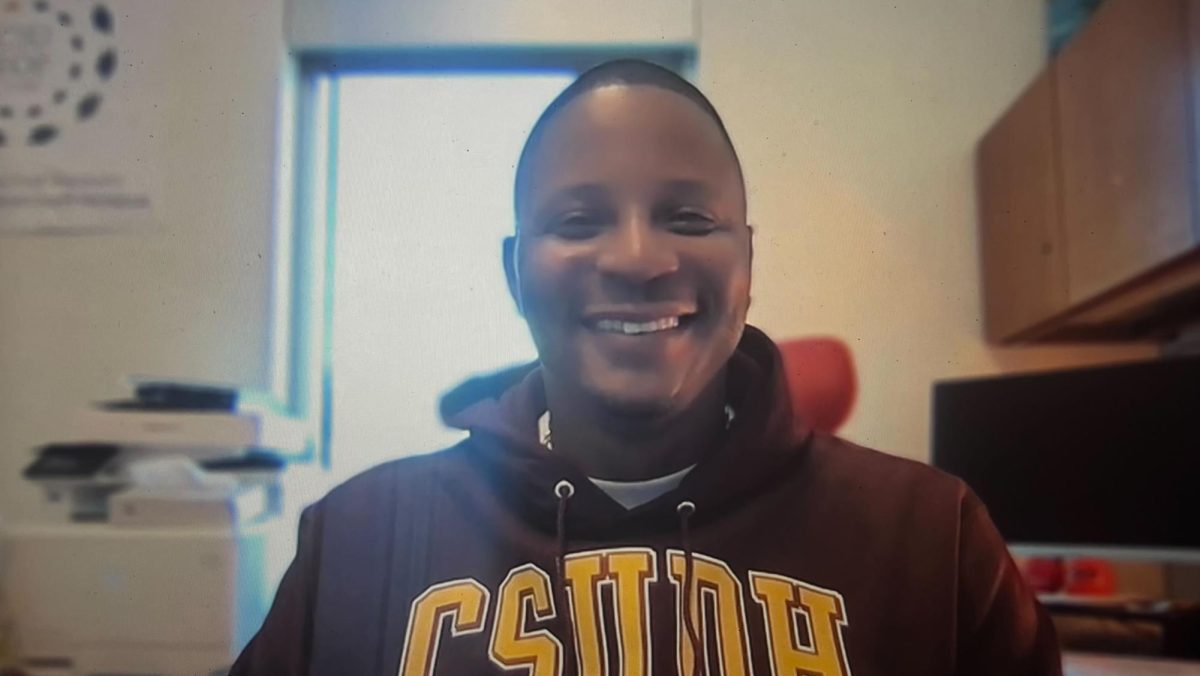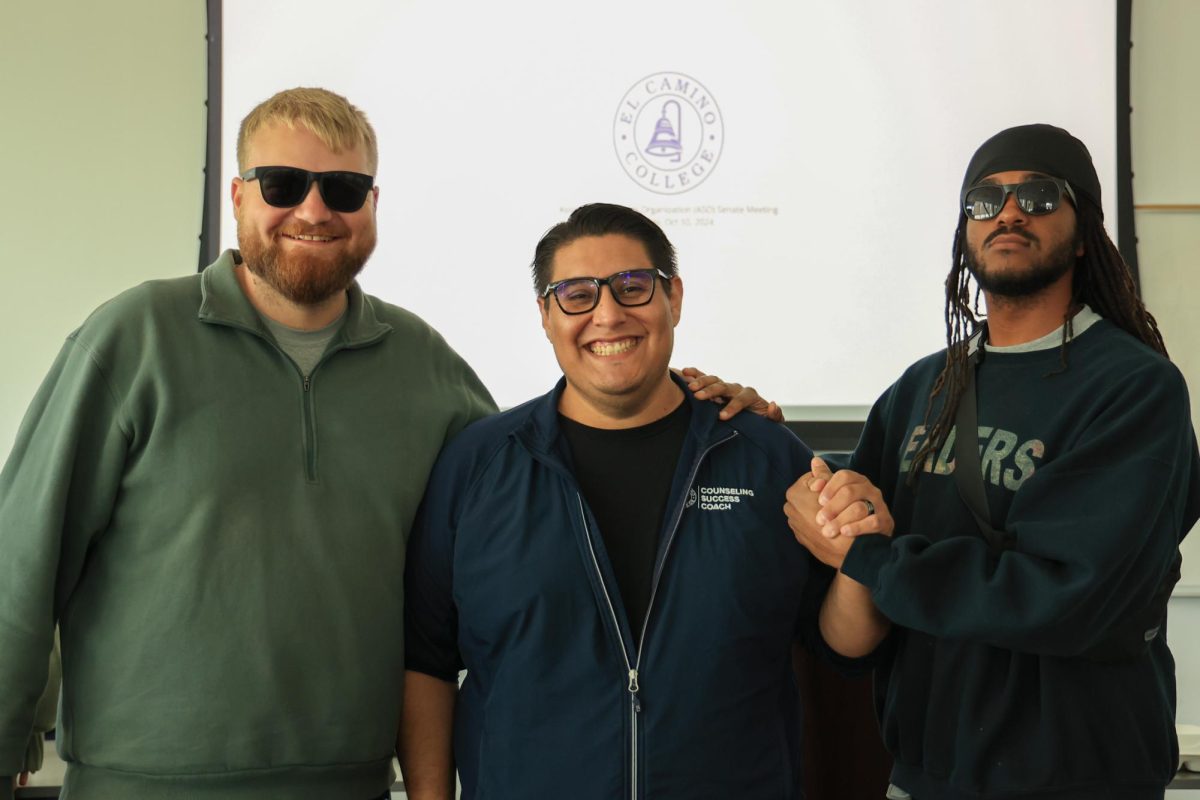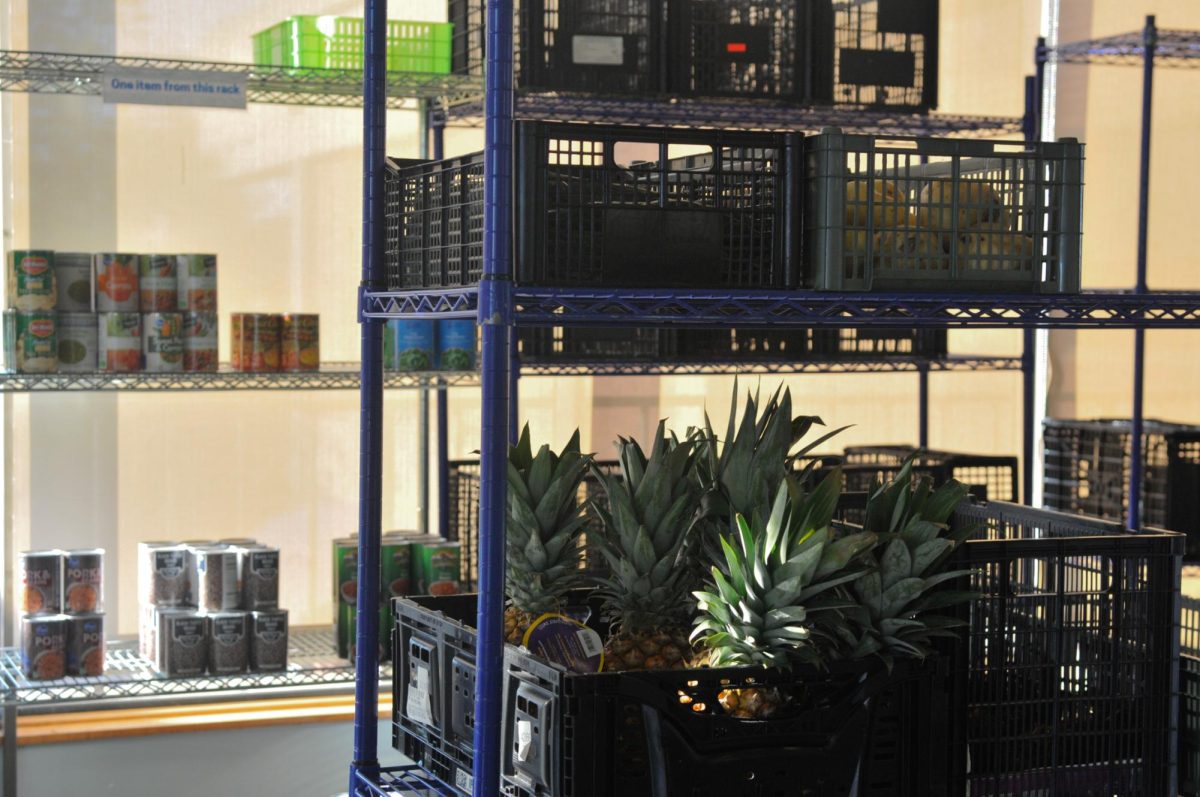Editor’s note: This article is part of a series that will focus on campuswide
If you work in or around the Industrial and Technical Shop, hold your breath.
Due to poor ventilation and out-of-date safety machinery, students taking the Automotive Collision Repair course are receiving respiratory symptoms, including breathing difficulty, dizziness and coughing.
“In general, it’s just a bad situation,” Kyle Smith, 19, automotive technology major, said.
“Sometimes, when I come home I notice that I have a lot more chalky-colored phlegm and it’s only after my classes,” Smith said. “I run and I work out and I’ve never had health problems until I started taking the course.”
Automotive collision repair instructor Ron Dohi is unaware of such ailments.
“I haven’t heard of anything,” Dohi said. “Here, you find just the type of things that you find at any auto shop.”
The course requires that students use a chemical substance called Bondo to prime the car before spray painting it. Afterward, students sand off the Bondo, leaving behind a fine dust that lingers in the air.
“I’ve noticed that there’ll be a cloud of paint or Bondo dust that will loom in the air for a good three or four hours,” Smith said.
Students are required to wear a mask when painting, priming or sanding, Dohi said.
“You are susceptible to these chemicals even when you’re not working on the car,” Smith said. “When someone else is sanding next to you, you’re the victim.”
Since no core materials are provided, students bring in their own possibly volatile chemicals, Smith said.
Other students have experienced coughing fits, but because it “comes with the job,” they ignore the symptoms, Smith said.
“A lot of (my classmates) say they’d never pursue careers in it because of the health issue,” Smith said.
Smith attributes students’ dizziness to the poor ventilation.
In addition, filters installed throughout the building are not doing an adequate job of purifying the air.
“(The filters) don’t catch everything,” Dohi said. “They filter about as well as a house fan would,” Smith said. “If you consider four students sanding something, that’s not going to filter anything. It blows it around.”
Dohi said it is the students’ responsibility to secure any medical conditions before they take the class.
“Asthma and those types of chronic problems should probably be looked into with their doctor before taking the course,” Dohi said.
Smith said he wishes the college would better fund the program, as he believes it is an important course.
“When you’re there for six hours almost every day, it’s like being a full-time smoker,” Smith said.
Deborah Herzik, student health center nurse, said everyone who works with chemicals should exercise common sense and follow safety measures.
“Particulate matter is not something you want to be inhaling. If it causes symptoms, it’s not safe,” Herzik said. “There are certain guidelines that have to be followed.”








